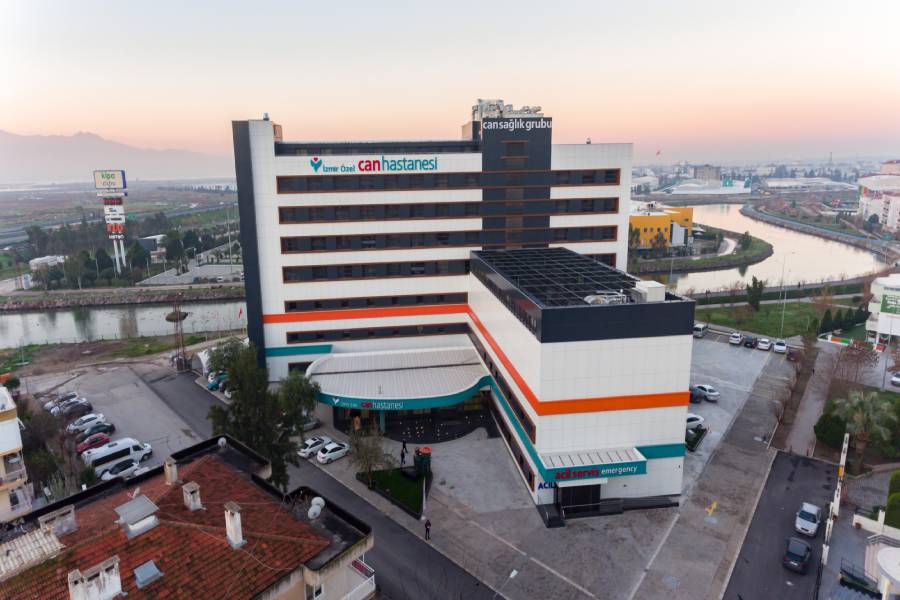How much can you eat 2 years after gastric sleeve?
Categorised in: Genel, HEALTH GUIDE
Published Date:
After gastric sleeve surgery, you start a journey of change. You’ll face new challenges and have a chance to improve your health. At the two-year mark, you’ll wonder what your diet will be like. It’s important to understand how much you can eat after surgery.
This phase is about finding a balance that fits your new body. It’s not just about eating less. It’s about making a lifestyle change that works with your new digestive system.
After surgery, controlling what and how much you eat is crucial for keeping a healthy weight. You’ll learn to eat mindfully and flexibly. People often find they feel full with smaller meals, unlike before surgery.
With help from experienced surgeons and nutrition plans, you start a new chapter. This chapter is about finding the right balance and enjoying food in a new way. It’s about eating to fuel your body without overloading your stomach.
Let’s explore this journey together. We’ll discover how to eat after surgery and improve your quality of life. Every meal becomes more meaningful and purposeful.
Gastric Sleeve Overview: Long-term Expectations
For those thinking about gastric sleeve surgery, knowing what to expect long-term is key. This surgery makes the stomach smaller and helps fight obesity. It’s important to look at how well it lasts and the outcomes for weight loss over time. Studies show that a smaller stomach can help keep weight off for years.
Right after surgery, eating less becomes easier because the stomach is smaller. People often eat less and feel fuller, which helps with weight control. The first few months are when most weight loss happens, making it a crucial time.
Success with gastric sleeve surgery isn’t just about the surgery itself. It also depends on following a healthy diet and lifestyle. Research from clinics and medical journals shows that regular check-ins with doctors and sticking to a diet and exercise plan lead to better results.
So, the outlook for gastric sleeve surgery is good for managing weight long-term if you stick to the recommended lifestyle changes. This commitment is key to getting the most out of the surgery and keeping weight off for good.
Understanding Portion Sizes After Gastric Sleeve Surgery
After a gastric sleeve surgery, it’s key to control your food portions to manage weight and stay healthy. In the first few months, your stomach can only hold a small amount of food, about 1/4 to 1/2 cup per meal. This careful control helps avoid problems and adjusts to your new stomach size.
As time goes by, your stomach can handle a bit more food, up to one cup per meal, around two years after surgery. Still, focus on eating nutrient-rich foods to avoid extra calories and get the vitamins and minerals you need.
Managing your food intake after gastric sleeve means watching both how much and what you eat. Regular meetings with nutritionists and bariatric experts help you learn how to eat right. They give you recipes, advice on how often to eat, and tips on portion sizes for post-surgery weight loss.
Following the right food intake guidelines and portion sizes is crucial for your recovery and long-term health. It helps prevent your stomach from stretching and supports a lasting lifestyle change. This leads to better weight loss and overall wellness.
Nutritional Guidelines in the Years Following Surgery
For those who have had bariatric surgery, following a specific diet is key. After the surgery, it’s important to focus on getting the right nutrients to stay healthy. Bariatric nutrition helps make sure every food choice is good for your new digestive system.
Getting enough vitamins after gastric sleeve surgery is a big part of the diet advice. Because your stomach is smaller, it can be hard to get all the nutrients you need. That’s why doctors often suggest taking multivitamins and supplements. These include important vitamins like B12, iron, calcium, and vitamin D to keep your body working right.
The diet starts with liquids, then moves to pureed foods, and finally to solid foods. Each step is watched closely by diet experts. The goal is to eat a mix of proteins, veggies, and healthy fats to help with weight control and nutrition.
It’s important to control how much you eat for the rest of your life. You’ll learn about choosing foods that are full of nutrients. Getting advice from a bariatric dietitian can really help with this. They can give you personalized tips based on your health and what you need to eat. Following these guidelines helps with recovery and keeps you feeling good, which is key for long-term success.
Dietary Adjustments and Eating Behaviors Post-Op
After gastric sleeve surgery, people often need to change their eating habits. It’s not just about eating less. It’s about adopting new habits that help you live healthier. Understanding these changes is key to success and avoiding problems.
Eating slowly and chewing well is a big change. It helps with digestion and stops discomfort from large food pieces. Learning to know when you’re full is also vital to avoid eating too much. These habits are crucial for making the surgery work well and sticking to a healthy diet.
Changing your favorite recipes can help with the new diet. Use more protein, less sugar, and focus on nutrient-rich foods. This makes meals tasty and right for your smaller stomach. Support groups share stories and tips that can help you during this change.
Adjusting to a new diet after gastric sleeve surgery is ongoing. It takes commitment and understanding. Getting advice from dietitians and joining support groups can be very helpful. They can guide you in eating well and improving your health and wellness.
Common Challenges and Solutions for Post-Gastric Sleeve Patients
After gastric sleeve surgery, patients face many challenges. These include adjusting to new diets and managing eating habits. Overcoming eating challenges is a big part of this, needing strong support and strategies.
One big issue is food intolerances due to changes in the digestive system. To tackle these, dietitians who know about post-surgery nutrition offer advice. They help patients avoid symptoms and stay nutritionally balanced.
Dealing with emotional eating and grazing is another challenge. To beat these, patients need to find new ways to cope. Support groups and therapy for bariatric patients offer the help and strategies needed.
Fluctuating appetite and trouble feeling full can also happen after surgery. Patients benefit from meal planning and regular health check-ins. This helps them eat right and avoid overeating, aiding in weight management.
Health institutions and bariatric centers offer seminars and workshops to help. These programs provide ongoing support and teach about nutrition and lifestyle changes. They are key in helping patients adjust and succeed after surgery.
Dealing with post-op issues with specific solutions ensures patients can stay healthy. With education, professional advice, and community support, eating challenges can be overcome. This helps many bariatric surgery patients achieve their health goals.
Managing Hunger and Satiety: How the Body Adapts
After gastric sleeve surgery, managing hunger changes a lot. People often see big changes in their appetite. This is because their stomach is smaller and their digestion works differently. It’s important to understand these changes to stay healthy after surgery.
The surgery affects hunger by changing gut hormones that control hunger. The ‘hunger hormone’, Ghrelin, is made less after surgery. This helps reduce appetite. But, the body changes over time, and knowing this is key.
Learning to recognize new signs of being full is important. Feeling ‘full’ after a gastric sleeve surgery is different. It’s about noticing subtle signs like feeling a bit uncomfortable or no longer feeling hungry. These signs help avoid eating too much and support weight control.
Managing hunger after surgery means listening to your body and adjusting to its new needs. By paying attention to fullness signals, you can eat just the right amount. This helps keep your eating habits healthy, supports weight loss, and improves your overall health.
Physical Activity’s Role in Post-Gastric Sleeve Consumption
Adding physical activity to your daily life is key to staying healthy after gastric sleeve surgery. Exercise helps with weight management and increases calorie burning. This is important when your diet might be smaller. Creating a fitness plan that fits you can improve your health and help balance your calories as you adjust to your new diet.
The American Society for Metabolic and Bariatric Surgery suggests doing different types of exercises. This includes strength training and flexibility exercises. Building muscle with resistance workouts can help burn more calories and support weight loss. Regular cardio exercises like walking, swimming, or cycling are also good for your heart and increase stamina, which is important after surgery.
Start with low-impact exercises and slowly increase the intensity as you get better. It’s important to listen to your body and not push too hard too soon. Regular exercise helps control calorie burning and leads to a healthier lifestyle. It also helps with nutritional balance as your body changes after surgery.
Exercise is great for managing your weight after surgery, but it should be done carefully. Always plan your workouts and get advice from a professional to avoid health problems. A fitness expert who knows about post-bariatric exercise can give you personalized advice that fits your health goals and surgery results.
Maintaining Weight Loss Success Years After Gastric Sleeve
Keeping weight off after gastric sleeve surgery is key. It takes constant effort and changing your lifestyle. People who share their success stories often talk about keeping their weight off for years. They visit bariatric centers regularly for check-ups, counseling, and medical tests to stay on track.
Life after losing weight is about balancing health and happiness. Being part of a supportive group is crucial. These groups offer a place to share struggles, tips, and celebrate victories. This support keeps people motivated to make healthy choices every day.
Staying healthy after the surgery means changing your lifestyle. This means being active, eating well, and listening to your body’s hunger signals. These habits help keep the weight off and prevent gaining it back. Changing your life in these ways is vital for your health and builds confidence in your ability to take care of yourself.

Why British Citizens Choose Turkey for Health Services?
British citizens are increasingly opting for Turkey when seeking medical treatments due to a combination of superior healthcare services, affordability, […]

Psychological Effects of Genital Aesthetics on Body Image
In a society increasingly focused on physical perfection, the realm of genital aesthetics has surfaced as an area of both […]

Common Concerns About Genital Plastic Surgery
Genital plastic surgery, a burgeoning field within the realm of cosmetic enhancements, has witnessed a notable surge in popularity. Procedures […]

In which cases is labiaplasty necessary?
Labiaplasty, a procedure that has recently garnered significant attention, involves the surgical reduction of the labia minora. This operation, also […]

Healthy Recovery Process After Genital Aesthetic Surgery
Day Things To Do Things to Avoid 1-7 Days – Bed rest – Using medications recommended by the doctor – […]